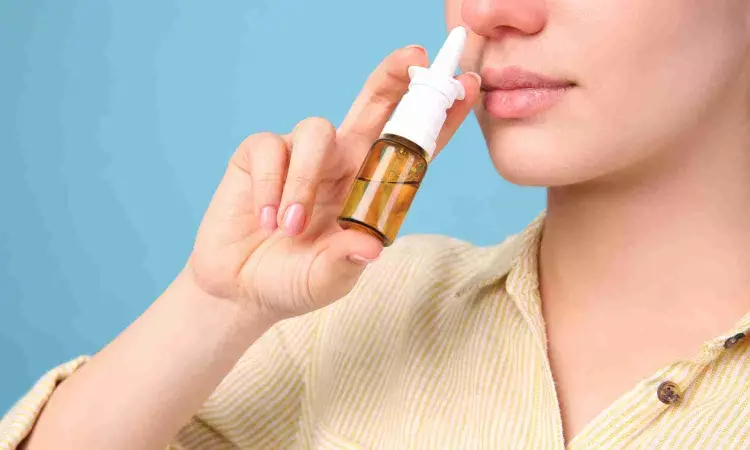- Home
- Medical news & Guidelines
- Anesthesiology
- Cardiology and CTVS
- Critical Care
- Dentistry
- Dermatology
- Diabetes and Endocrinology
- ENT
- Gastroenterology
- Medicine
- Nephrology
- Neurology
- Obstretics-Gynaecology
- Oncology
- Ophthalmology
- Orthopaedics
- Pediatrics-Neonatology
- Psychiatry
- Pulmonology
- Radiology
- Surgery
- Urology
- Laboratory Medicine
- Diet
- Nursing
- Paramedical
- Physiotherapy
- Health news
- Fact Check
- Bone Health Fact Check
- Brain Health Fact Check
- Cancer Related Fact Check
- Child Care Fact Check
- Dental and oral health fact check
- Diabetes and metabolic health fact check
- Diet and Nutrition Fact Check
- Eye and ENT Care Fact Check
- Fitness fact check
- Gut health fact check
- Heart health fact check
- Kidney health fact check
- Medical education fact check
- Men's health fact check
- Respiratory fact check
- Skin and hair care fact check
- Vaccine and Immunization fact check
- Women's health fact check
- AYUSH
- State News
- Andaman and Nicobar Islands
- Andhra Pradesh
- Arunachal Pradesh
- Assam
- Bihar
- Chandigarh
- Chattisgarh
- Dadra and Nagar Haveli
- Daman and Diu
- Delhi
- Goa
- Gujarat
- Haryana
- Himachal Pradesh
- Jammu & Kashmir
- Jharkhand
- Karnataka
- Kerala
- Ladakh
- Lakshadweep
- Madhya Pradesh
- Maharashtra
- Manipur
- Meghalaya
- Mizoram
- Nagaland
- Odisha
- Puducherry
- Punjab
- Rajasthan
- Sikkim
- Tamil Nadu
- Telangana
- Tripura
- Uttar Pradesh
- Uttrakhand
- West Bengal
- Medical Education
- Industry
Nasal sprays with exercise may reduce duration of respiratory infections: Lancet

A new study published in The Lancet Respiratory Medicine found that the recommendation to use nasal sprays at the first symptom of a respiratory tract infection had a significant impact on the duration of sickness and reduced work days missed, while the recommendation to utilize a physical activity and stress management website resulted in a mild reduction in the incidence of sickness.
Previous studies indicate that nasal sprays, exercise and stress reduction techniques may reduce the length of respiratory infections. Thereby, Paul Little and colleagues carried out this study to evaluate the impact of nasal sprays or a behavioral intervention encouraging physical activity and stress management on respiratory infections.
This randomized, open-label, controlled, parallel-group experiment was conducted at 332 primary care practices in the UK and involved eligible individuals who were above 18 years. The participants were randomly assigned to the standard treatment, gel-based spray, saline spray or a short behavioral intervention. The results were analyzed using monthly questionnaires and a 6-month survey which focused on the primary outcome of sickness caused by respiratory tract diseases. Potential hazards, such as headache or face discomfort, and antibiotic usage were investigated in all assigned at random patients.
A total of 13,799 people were randomly allocated from December 12, 2020 to April 7, 2023, to either usual care, gel-based nasal spray, saline nasal spray, or a digital intervention encouraging physical activity and stress management. Cloe to, 11,612 individuals provided full data for this primary outcome and were incorporated in the analysis.
The gel-based spray and saline spray groups expressed significantly lower days of sickness than the usual care group (8·2 days on average), but not the behavioral online group. Headache or sinus pain was the most common adverse event in the gel-based group, with 123 (4·8%) of 2556 individuals in the usual care group, 199 (7·8%) of 2498 individuals in the gel-based group, 101 (4·5%) of 2377 individuals in the saline group and 101 (4·5%) of 2091 individuals in the behavioral intervention group.
All treatments resulted in decreased antibiotic usage when compared to usual care with IRRs of 0.65 for gel-based spray, 0.69 for saline spray and 0.74 for behavioral website. Overall, the recommendation to use either nasal spray reduced sickness duration, and both sprays and the behavioral website reduced antibiotic use.
Reference:
Little, P., Vennik, J., Rumsby, K., Stuart, B., Becque, T., Moore, M., Francis, N., Hay, A. D., Verheij, T., Bradbury, K., Greenwell, K., Dennison, L., Holt, S., Denison-Day, J., Ainsworth, B., Raftery, J., Thomas, T., Butler, C. C., Richards-Hall, S., … Geraghty, A. W. A. (2024). Nasal sprays and behavioural interventions compared with usual care for acute respiratory illness in primary care: a randomised, controlled, open-label, parallel-group trial. In The Lancet Respiratory Medicine. Elsevier BV. https://doi.org/10.1016/s2213-2600(24)00140-1
Neuroscience Masters graduate
Jacinthlyn Sylvia, a Neuroscience Master's graduate from Chennai has worked extensively in deciphering the neurobiology of cognition and motor control in aging. She also has spread-out exposure to Neurosurgery from her Bachelor’s. She is currently involved in active Neuro-Oncology research. She is an upcoming neuroscientist with a fiery passion for writing. Her news cover at Medical Dialogues feature recent discoveries and updates from the healthcare and biomedical research fields. She can be reached at editorial@medicaldialogues.in
Dr Kamal Kant Kohli-MBBS, DTCD- a chest specialist with more than 30 years of practice and a flair for writing clinical articles, Dr Kamal Kant Kohli joined Medical Dialogues as a Chief Editor of Medical News. Besides writing articles, as an editor, he proofreads and verifies all the medical content published on Medical Dialogues including those coming from journals, studies,medical conferences,guidelines etc. Email: drkohli@medicaldialogues.in. Contact no. 011-43720751


